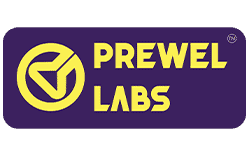ISO 13485 is a globally recognized standard that sets out the requirements for a quality management system (QMS) specific to the medical device industry. For manufacturers and testing labs in this sector, understanding and implementing ISO 13485 is not just about compliance; it’s about a commitment to quality and safety in every aspect of medical device production and testing. This blog aims to demystify ISO 13485 and highlight its role in ensuring quality in medical device testing.
What is ISO 13485?
ISO 13485 is based on the ISO 9001 process model concepts and is designed specifically for medical device quality management. This standard outlines the requirements for a comprehensive management system for the design and manufacture of medical devices. Its primary focus is on ensuring product safety and efficacy, as well as meeting customer and regulatory requirements.
Key Components of ISO 13485
1. Risk Management
Emphasizes risk management throughout the product lifecycle and decision-making process.
Involves identifying, evaluating, and mitigating risks in all stages, from design to distribution.
2. Document Control and Records Management
Requires systematic documentation of processes, changes, and quality checks.
Ensures traceability and accountability in every step of the medical device testing process.
3. Regulatory Compliance
ISO 13485 aligns with global regulatory requirements, making it easier for companies to comply with international laws.
It includes specific requirements for documentation, quality management, and other essential regulatory aspects.
4. Product Realization
Involves planning and development of product processes.
Focuses on factors like product design, development, and manufacturing processes to ensure quality and safety.
5. Measurement and Analysis
Requires regular monitoring and measuring of processes to ensure consistent quality.
Includes feedback mechanisms to continually improve process effectiveness.
Benefits of ISO 13485 Certification
Enhanced Product Quality: Adherence to ISO 13485 ensures a high standard of quality management, leading to superior product quality.
Global Recognition: ISO 13485 is an internationally recognized standard, which can facilitate access to global markets.
Increased Efficiency: Standardized processes lead to increased operational efficiency and consistency in medical device testing.
Customer Trust: Certification enhances credibility and builds customer trust in the safety and efficacy of medical devices.
Implementing ISO 13485 in Medical Device Testing
1. Gap Analysis
Assess current processes against ISO 13485 requirements to identify areas of improvement.
2. Training and Awareness
Conduct training for staff to ensure they understand the requirements and their role in meeting them.
3. Process Development and Documentation
Develop or revise processes to align with ISO 13485 and document these processes thoroughly.
4. Internal Auditing
Regular internal audits are crucial to ensure ongoing compliance and identify areas for continuous improvement.
5. Management Review
Regular reviews by top management to ensure the QMS is effective and aligned with organizational goals.
Conclusion
Understanding and implementing ISO 13485 is crucial for any organization involved in the production or testing of medical devices. It’s not just a regulatory requirement; it’s a framework that guides companies to ensure the highest quality standards. In a field where the stakes are as high as patient health and safety, ISO 13485 is not just a standard; it’s a necessity.
Prewel Labs, your trusted partner in Contract Testing and Research services is a cutting-edge contract laboratory poised to revolutionize the industry through exceptional service, advanced technology, and unwavering commitment to quality. We aim to address the growing demand for reliable and comprehensive testing solutions across diverse industries, ranging from pharmaceuticals, medical devices and consumer goods to environmental and regulatory compliance. At Prewel Labs, we offer an extensive range of analytical testing services, including chemical analysis, microbiological testing, and more. Whether you require analytical testing, product method validations, method development, compliance verification or safety assessments, we have the expertise and capabilities to support your requirements. With a team of experienced scientists and technicians, state-of-the-art equipment, and stringent quality control processes, we are poised to provide accurate and timely results to our clients. Reach out to our expert team and they will help you in providing all the necessary support to make your products safer.

